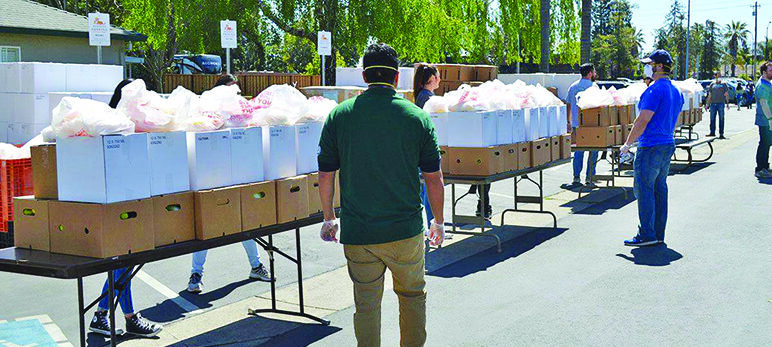Brought on by the devastating effects of Covid-19, one of the largest food banks in the nation—Second Harvest of Silicon Valley—is distributing more food than ever.
A number of the recipients are people who never received food assistance before, a telltale sign of the virus’ impact even in one of the wealthiest regions in the country.
Due to rising demand and in conjunction with partner agencies, Second Harvest has opened up additional distribution sites throughout Santa Clara and San Mateo counties as many people have fallen on hard economic times due to the virus.
Since the start of the pandemic, Second Harvest has been able to distribute food to 500,000 people a month—or double the amount in pre-pandemic times.
The bad news? It’s facing a critical shortage of volunteers to meet the demand of its expanded operations, which includes 130 new drive-through sites.
“We’re at 50 percent of the work force of where we need to be to get food out the door to what the community needs right now,” Cat Cvengros, vice president of marketing and development, said to San Jose Inside.
Volunteers make up 40 percent of the Second Harvest workforce, but a perfect storm of events has caused a critical shortage of good Samaritans. Usually fortified with a surplus of volunteers, Second Harvest lost a huge chunk of its volunteer base—consisting of tech workers and seniors—due to Covid-19.
“Our warehouse where we have the most volunteers to sort out food, well those tech workers are now working from home so they’re not volunteering,” Cvengros said. “And seniors are not able to volunteer as they are a high-risk population [to catch the virus].”
The loss of its volunteer base and the rising number of people in hunger means Second Harvest needs an influx of workers to distribute food.
“With such tremendous need right now, we are calling on members of our community to volunteer to help us provide this much needed relief to our neighbors in crisis,” Second Harvest CEO Leslie Bacho said.
Volunteers in good health can sign up to work shifts at shfb.org.


In other words, those that benefit from Second Harvest don’t contribute. Perhaps the organization should consider an “in-kind” program to discourage freeloaders.